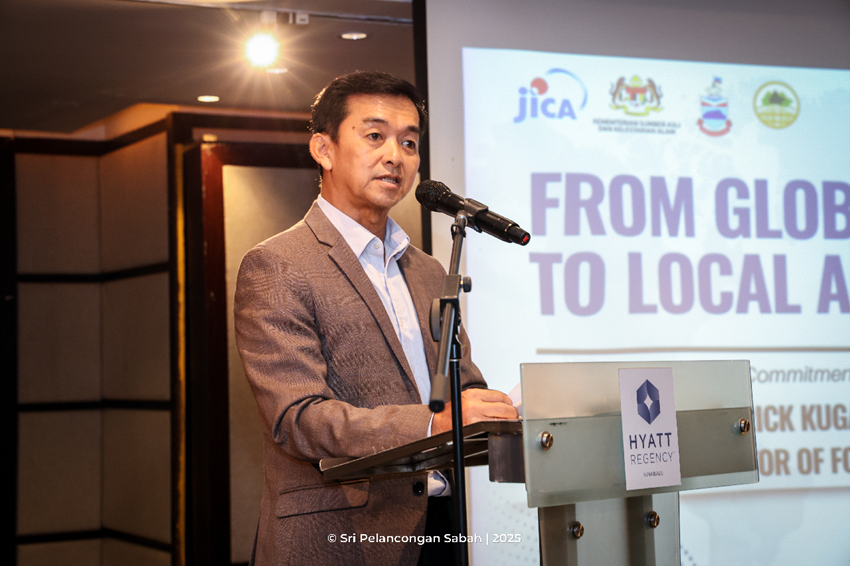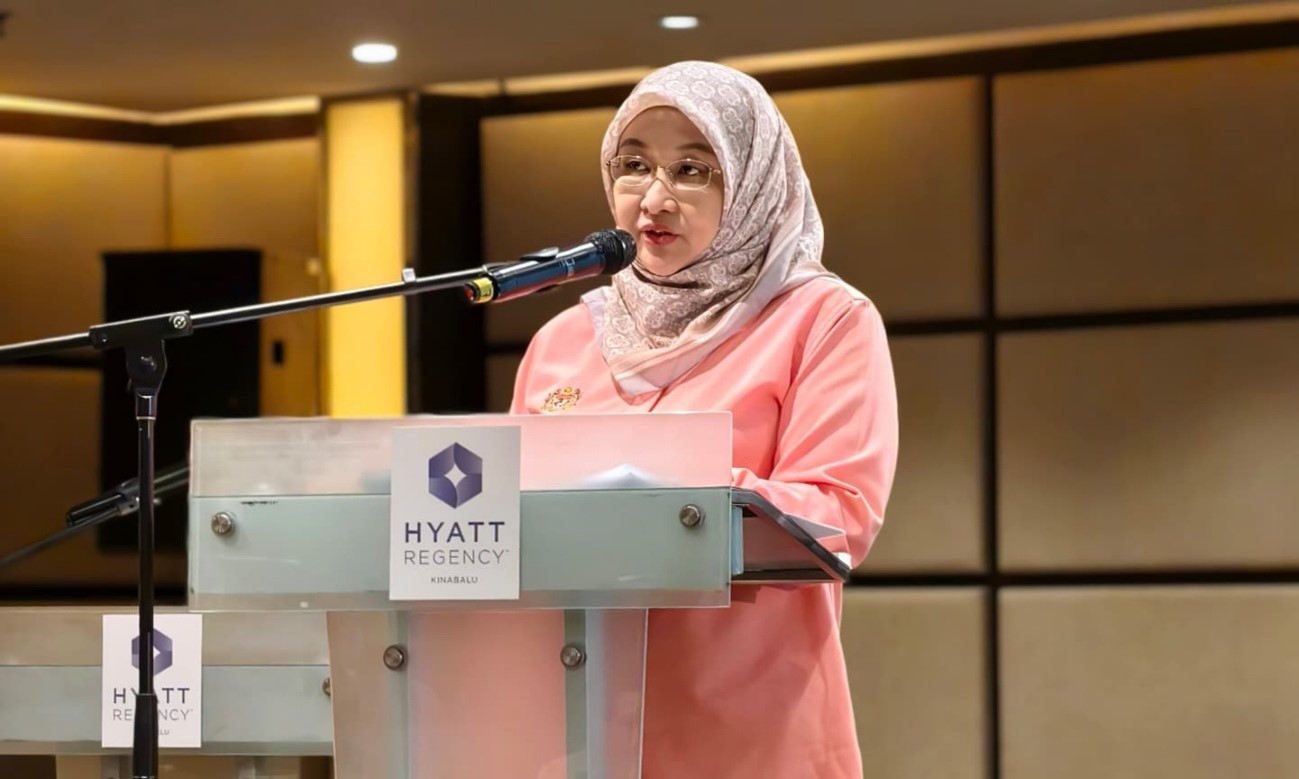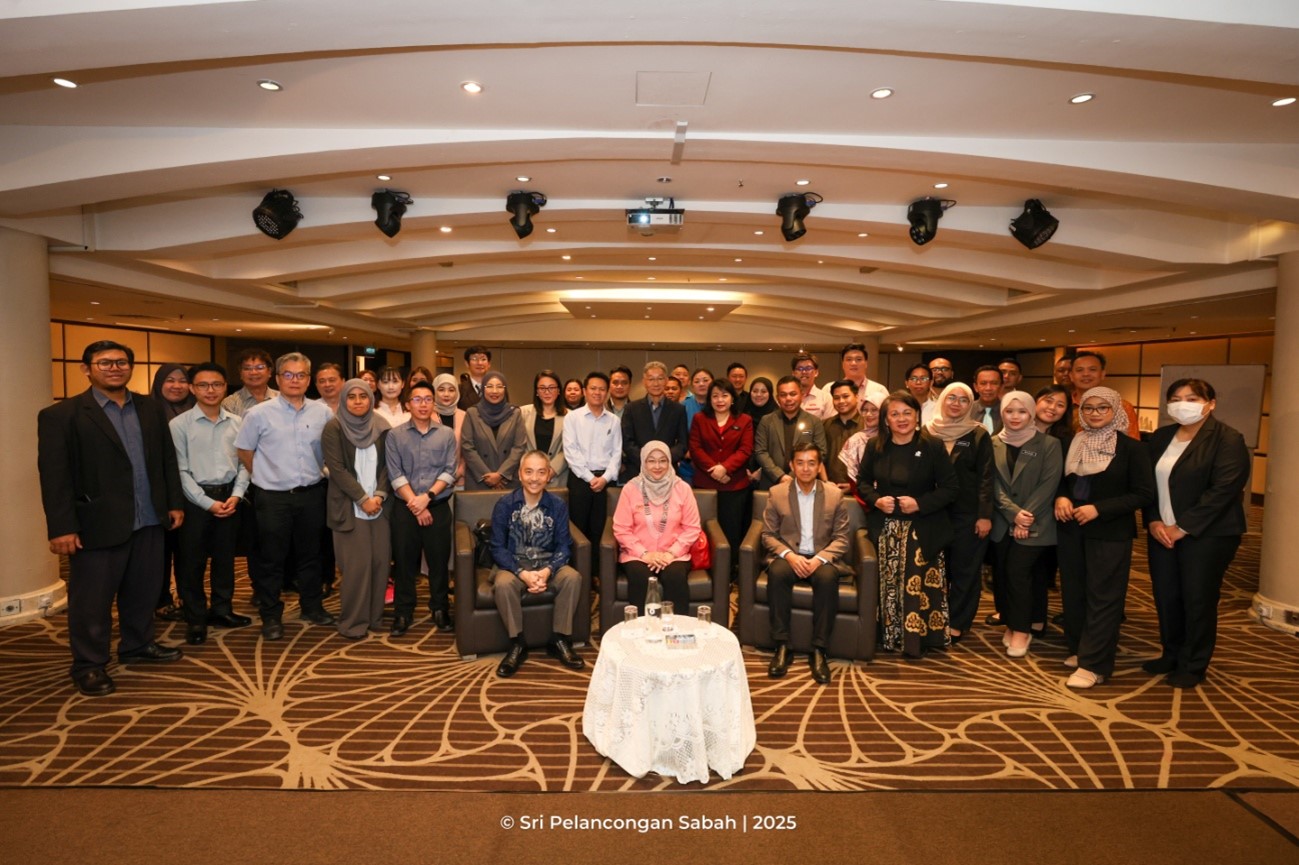Workshops on Climate Transparency were held in Sabah and Sarawak
2025.08.13
JICA, in collaboration with the Ministry of Natural Resources and Environmental Sustainability (NRES) of Malaysia, and the Sabah Forestry Department (SFD), held the “Workshop on climate change transparency” in Sabah on 5th August 2025, in Kota Kinabalu, Sabah. The workshop was organized under the "Project for strengthening capacity pertaining to national reporting obligation to the United Nations Framework Convention on Climate Change (UNFCCC) under the enhanced transparency framework" to raise awareness on progress-tracking of climate change mitigation actions and potential on mitigation actions in the cooling sector.
Sabah and Sarawak are Malaysian states located on Borneo Island which have wide discretion in administration except for federal issues such as foreign affairs. These local governments develop their own climate change policies. Sabah state established the Sabah Climate Action Council in 2022, which SFD is secretariat. Sarawak also aims at 2050 net-zero emissions of greenhouse gases (GHG) and published their “Sustainability Blueprint 2030” in May 2025. They are keen on utilizing carbon credits as stipulated under Article 6 of the Paris Agreement, as well as Carbon Capture Utilization and Storage (CCUS), expecting large mitigation potentials. Local GHG inventories are planned to be prepared in Sarawak by 2027, and mandated under Sabah’s Climate Change and Carbon Governance Enactment 2025, as a climate transparency action. However, they identify capacity building needs in preparation, such as data collection and compilation.

In the workshop, Federal and Sabah governments and JICA shared initiatives on climate mitigation and transparency by each entity, and discussed potential areas for future cooperation. Datuk Frederick Kugan, the Chief Conservator of Forests of SFD, emphasized the importance of emissions reduction of Hydrofluorocarbons (HFC), a group of potent GHG, to implement UNFCCC and the Montreal Protocol, and preparation of local GHG inventories to ensure the carbon neutrality by 2050 as an international commitment of Malaysia. Datuk Yahati binti Awang, Deputy Secretary-General of NRES, appreciated cooperation of Sabah state on the preparation of the first Biennial Transparency Report (BTR1) which was submitted to UNFCCC by the due date in December 2024, and called for further collaboration towards BTR2 which is to be submitted by 2026.

Significance of emissions reduction in the cooling sector including HFC and Ozone Depleting Substances was presented during the workshop. Cooling demand is skyrocketing in Malaysia, a tropical country with rapid economic growth, due to increasing needs for air conditioning, cooling in data centers and cold chain for foods. The cooling sector contributes to national GHG emissions in a large portion, through dominant energy consumption and usage of HFC with high global warming potential as refrigerants. Although Malaysia has substantial experience in preparing national GHG inventories, the current emission levels of HFC are not well known at the moment. The presentation touched upon possible mitigation measures known as life cycle refrigerant management, such as replacing obsolete cooling equipment to new ones and refrigerant leakage minimization, which are cost-effective and contribute to various aspects including comfort and food safety, and emphasized data needs for proper planning.


A similar workshop was also held in Kuching, Sarawak on 17th June 2025. Through these events, the project contributed to achieving a sustainable future by enhancing cooperation and collaboration with local governments and the private sector.
The project focuses on capacity building at the Federal level on preparation of international reports, while these workshops provided an opportunity to discuss the involvement of state governments. In addition, transparency is key to tap on utilizing carbon credits. International cooperation activities in this area underpin developing countries’ efforts for financing mitigation actions and developed countries for future cooperation in mitigation.
Project details
:
The new Enhanced Transparency Framework was established under the Paris Agreement adopted in 2015, which requires all parties, including developing countries, to submit a BTR including information related to greenhouse gas inventories. This project aims to strengthen Malaysian technical and institutional capacity to prepare BTRs, enhance national capacity for the regular development of greenhouse gas inventories, and strengthen its capacity to estimate Fluorinated gas emissions.
JICA remains committed to working closely with the Malaysian government to ensure the success of this project and contribute to a sustainable future.
scroll